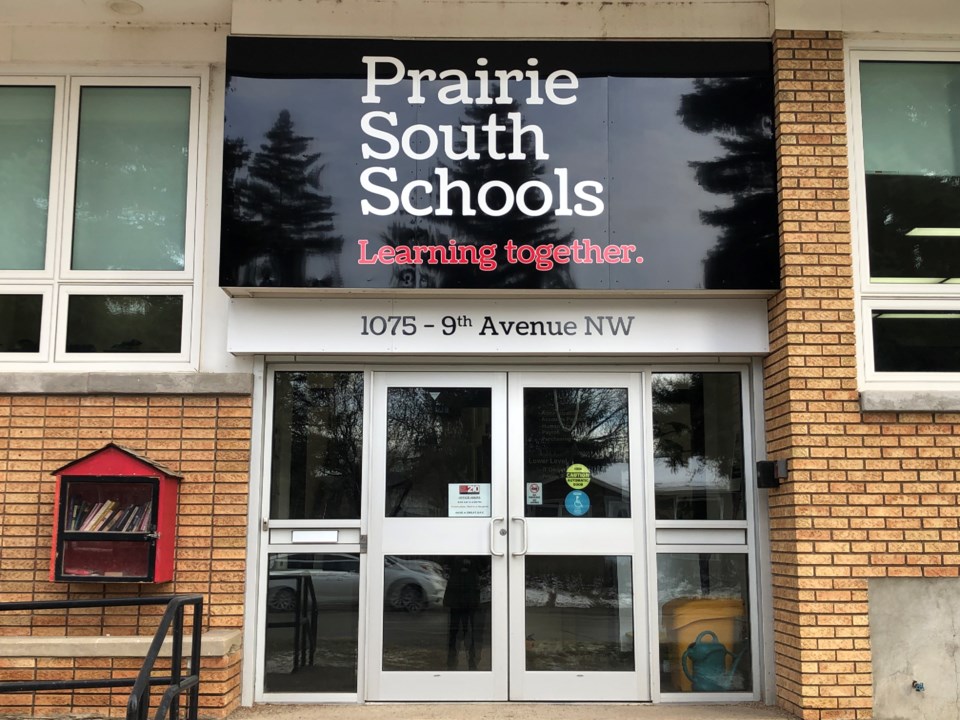MOOSE JAW — Trustees with Prairie South School Division have approved their 2025-26 budget and will use almost $440,000 in reserves to cover a deficit that would likely not exist if the carbon tax were removed.
The approved operating budget features $110,759,381 in revenues and $108,764,539 in expenses, for an initial surplus of $1,994,842. However, after amortization, the surplus turns into a cash deficit of $435,867, which the division will cover using its reserves.
In comparison, this year’s budget numbers were $114,530,107 in revenue, $102,470,546 in expenses, $12,059,561 in an initial surplus and $1,661,965 in a cash deficit.
Ron Purdy, superintendent of finance, explained during the June meeting that capital grant funding from the province will decrease next year from $15.4 million to $4.6 million because the new school is nearly completed and should be paid entirely this fall.
Furthermore, the Ministry of Education increased Prairie South’s operating grant by $5.9 million and its preventative maintenance and renewal (PMR) funding — for repairing schools — by $730,000, he continued. However, because the province decreased the capital funding, this $6.63 million operating grant increase turned into a decrease of $4.1 million.
Meanwhile, instruction expenses (teacher salaries) will see a “fairly significant increase” of $4.3 million in 2025-26 because the division is adding teachers and reducing the pupil-teacher ratio in classrooms, including collective bargaining increases for educators and hiking wages for support staff, he continued.
Furthermore, plant expenses (building maintenance) jumped $1.4 million as the province provided $730,000 more for PMR, while the division will start depreciating the new school by $600,000, the finance superintendent remarked.
Purdy added that this budget “is a really good news” story.
Trustee Patrick Boyle focused on the carbon tax, pointing out that Ottawa has removed it from residential-based natural gas. However, he wondered whether it still affected Prairie South’s utilities.
Replying, Purdy said SaskPower and SaskEnergy have said they will not collect that money anymore. However, he did not remove that expense because Ottawa has not yet eliminated it through legislation and “could just put it back as quickly as they took it off.”
If the Liberals officially cut that tax, the division could save $350,000 to $400,000, he added.
“This is actually almost a balanced budget without the federal government intrusion of what they have done with (the) carbon tax on here,” Boyle said, while he commended Purdy for taking a “conservative position” in waiting to see what Ottawa does before removing the fee.
Trustee Lew Young said the Moose Jaw-area member of Parliament stood in the House of Commons recently and asked questions about how the carbon tax affects organizations such as school divisions. The trustee appreciated the MP’s efforts, especially since the board has been “bending his ear” about this issue.
Meanwhile, Young said he has approved 31 budgets as a trustee, and during that time, those boards have always wanted more provincial funding but have never received enough. However, he thought the situation for next year was encouraging, while overall, most school boards “are very happy” with the funding increases the province provided.
Shawn Davidson, a rural trustee, said “the vast majority” of expense increases are for instruction, which shows the board’s continued commitment to the classroom. Furthermore, plant expenses are higher, which are mostly related to maintaining buildings and PMR projects.
One challenge that rural school divisions face is doing better with maintaining old school buildings since it’s unlikely that Eyebrow or Kincaid will receive a new school soon, he continued. This requires PMR funding, which the province acknowledged this year and provided more for next year.
“This (budget) essentially is somewhat the fruition of some long-term planning around this table,” Davidson stated, as past boards built up a rainy-day fund reserve that recent boards have used to maintain services and be a bridge to today with revenues and expenses that are almost even.
“Those were not easy decisions to draw down on monies that had been saved by decades of prudent budgeting, but it was necessary,” he said. “It put our students in an advantageous position because we were able to support them when we otherwise wouldn’t have had the funds to do it.”
Davidson added that the board’s long-term planning has paid off and it “didn’t have to shock the system” with rash decisions, while the budget is nearly balanced years ahead of schedule.




